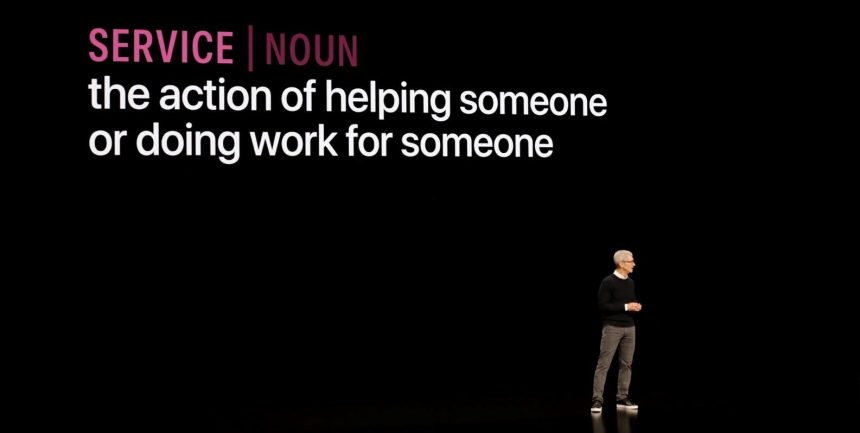Apple raised the prices of several of its services this week. Apple TV+, Apple Arcade and all AppleOne packages have become more expensive, and in the United States so has a service that we do not have in Spain: Apple News+.
Although this increase can be understood as another move to monetize its services and to consolidate a division that has already become the second largest for the company in terms of revenue, only behind the iPhone… it has an additional reading.
Especially if we look at the percentages of each increase.
Increases that are not equally distributed
Apple already raised the prices of almost all of its services just a year ago, in October 2022. The inflation that skyrocketed during that year was seen as the main culprit, but already then a certain trend was visible that is now consolidated: Apple is increasingly ‘punishing’ those who subscribe to individual services instead of opting for an Apple One plan, which bundles those services.
In relative terms, Apple One increases less the higher the price. The individual plan has risen by 33% in this year and a half, but the Premier plan, which is shared with the whole family, “only” by 21%.
On the other hand, the individual services have increased much more, except for Apple Music, which lives in a different condition: it does not lead its sector. That’s up to Spotify, with far more users, both in total and paid-only. At least until Apple last gave its user figures.
Elsewhere, where Apple has more leeway for uploads, either because it doesn’t have a big tech rival or because it has something that sets it apart from the rest (such as integration with the Apple Watch on other screens for Fitness+).
It seems that with some of its services Apple’s intention is not so much to focus on them as individual products, but as value propositions for its packages. Something similar to what happens with Amazon and Prime Video: it is not so much oriented to be contracted for its own sake, as it happens with Netflix or HBO Max, but to increase the perceived value over the Amazon Prime subscription, which goes far beyond free shipping.
The bundling of services has another consequence much desired by companies: to put a brake on instinctive cancellation. Let’s draw a comparison with operators. The last decade was the decade of the convergence boom for telecoms, and not only for bringing together their services (fiber, mobile, television), but also incorporating those of others (legal advice, health insurance, personal cloud…).
The intention was clear: to add value to the contract and to make an additional euro, but also to make portability and cancellations more difficult. For someone who has their services contracted independently, it is very easy to detect a better mobile tariff and make the transfer in two days. On the other hand, for someone with a package of seven services, it involves a lot more calculations and steps, because they will often have to reconsider what they are most interested in from their current operator and their competitors.
In the case of Apple’s services, it is very easy for an Apple Music user to move to Spotify because they are tired of a desktop application that works poorly macOS by macOS too, but if that user is linked to Apple One Premier, the transition does not end in two clicks and rethinking playlists, but in seeing which services they cancel, which ones they keep, how they fare in price and whether an alternative will be better.
And hence, in yet another company, the interest in bundling: not only is it a way to increase recurring monthly revenues, but also to make it difficult to drop without having to resort to obscure patterns or similar gimmicks.
And in a company like Apple, which depends more and more on its Services division (in the last presentation of results they were 26% of its revenues), and moreover they are recurring revenues, not seasonal like those of hardware… we can expect reinforced efforts in this direction for the coming times. And Vision Pro is coming soon.
PS: Apple has been quick to raise service prices twice in one year, but not so quick to increase iCloud storage space, despite the fact that the GB gets cheaper every year.


